The typical cliché used to describe people like me who go traveling for extended periods of time is to say that, “He is finding himself.”
Setting aside the belittling way that expression is generally used – as if the instinct for self-discovery is to be mocked rather than celebrated – after almost 17 months on the road I’ve found the common idea of “finding oneself” to be totally inaccurate.
Perhaps I’m speaking just for my impressions, but the image I’ve always gleaned from this meme is that the lonely traveler journeys in search of people, places, and things that are him (or her), and yet he never knew. That sunset, that beach, that romance or friendship, this guru, this city, this monument or special moment – all of these things are taken to be long lost pieces of oneself.
It’s as if “the self” has been dynamited, perhaps in some traumatic pre-birth moment, and the resulting fragments scattered across the globe by a great and mysterious wind.
These pieces must then be sought out, dug up, pocketed, and absconded with, like a spiritual Indiana Jones or Lara Croft. Then he or she might finally return, having achieved the goal to which many of our hearts aspire: the feeling of wholeness that comes with authentic self-knowledge.
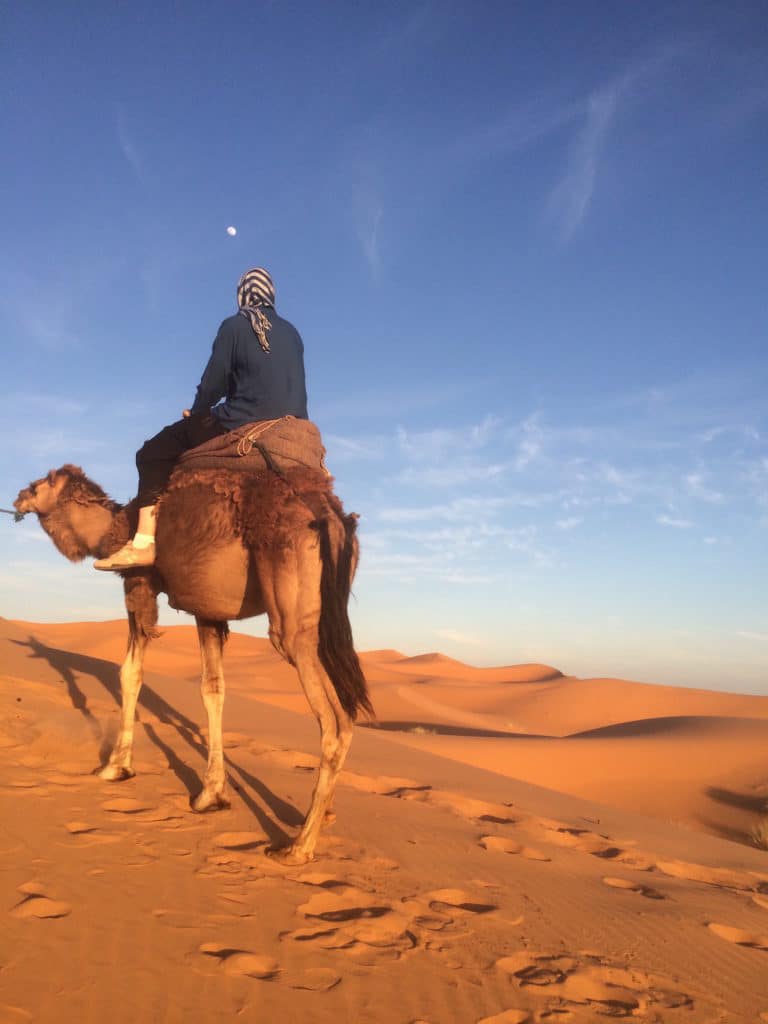
It’s a beautiful image. Evocative. Exotic. Romantic. Cinematic.
And it’s totally, totally wrong.
I can see now how our unconscious adherence to this idea creates damaging side effects for travelers, aspiring travelers, and their admirers and supporters from afar.
In doing so it reveals a great deal more, as well.
THE FIRST PROBLEM
On one hand, the idea encourages a trend that I dislike: the commodification of travel.
As informative as TripAdvisor, Lonely Planet, and blogs can be, reliance on them tends to atomize the rich and complex experience of travel. Go see this, eat that, and do the other thing, these resources seem to say, and you’ll “properly experience” a country, culture, or place.
But traveling for any length of time isn’t just about the highlights. While those are the most memorable and photo-friendly moments, they only tell half the story, or less. The remainder is found drifting wordlessly in the Gulf Stream of existence between the islands of memorable peak experiences.
Travel is equally about the in-the-moment state of being, soaking in the ineffable “alternate states of consciousness” that constitute the lifestyles of foreign countries, while at the same time being liberated from our habits, comforts, and familiarities of home.
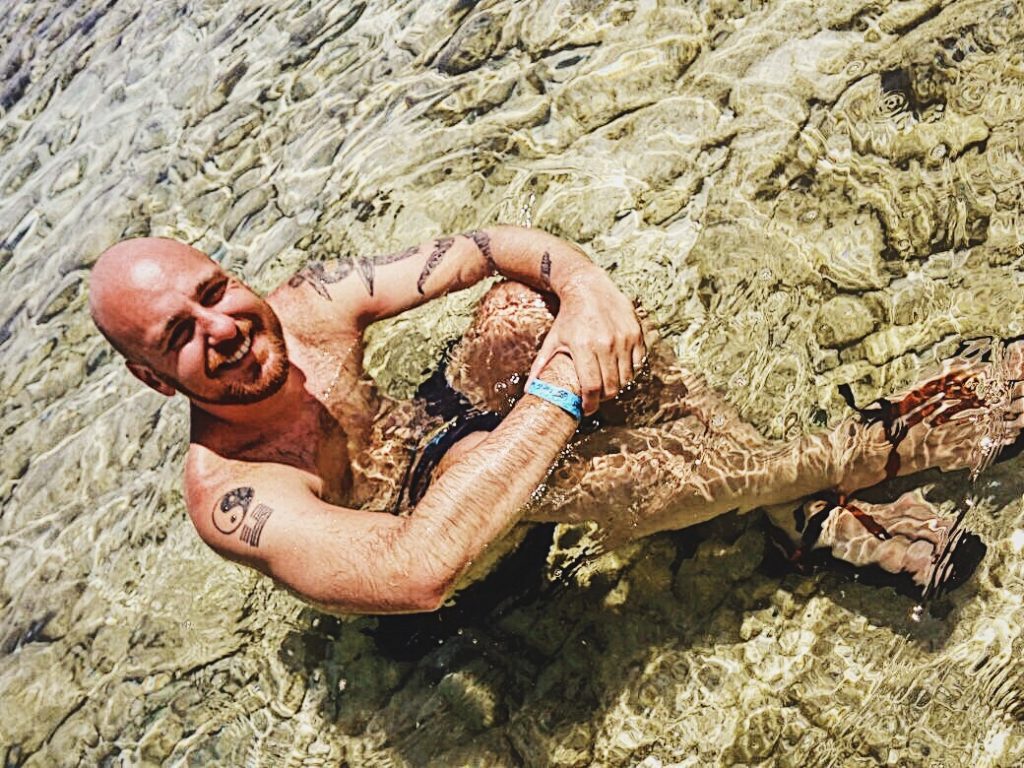
In this way, among its many other benefits, travel is one of the best opportunities we can buy to experience true, deep, and abiding in-the-moment presence.
What, after all, do we pay for: Seeing the Eiffel Tower? Or being in France, immersed in the “Frenchness” of it all, including the sights, sounds, smells, and subtle energies found on every cobblestone street surrounding the Tower?
The common concept of “finding oneself,” however, appears to emphasize “oneself” as being found in the peak experiences at the Tower or the Louvre, rather than in the walk between them, the lobby of the hotel, or even in the inimitable Parisian light dancing in the window at dawn.
But the infinite series of often-mundane moments between peaks deserve an equal position of importance. They cannot, should not, and must not be overlooked, or else one might miss the forest for the trees!
I see this all the time: tourists, travelers, and backpackers with their faces buried in travel guides and smartphones, anxiously seeking their destinations, unaware that they have already arrived.
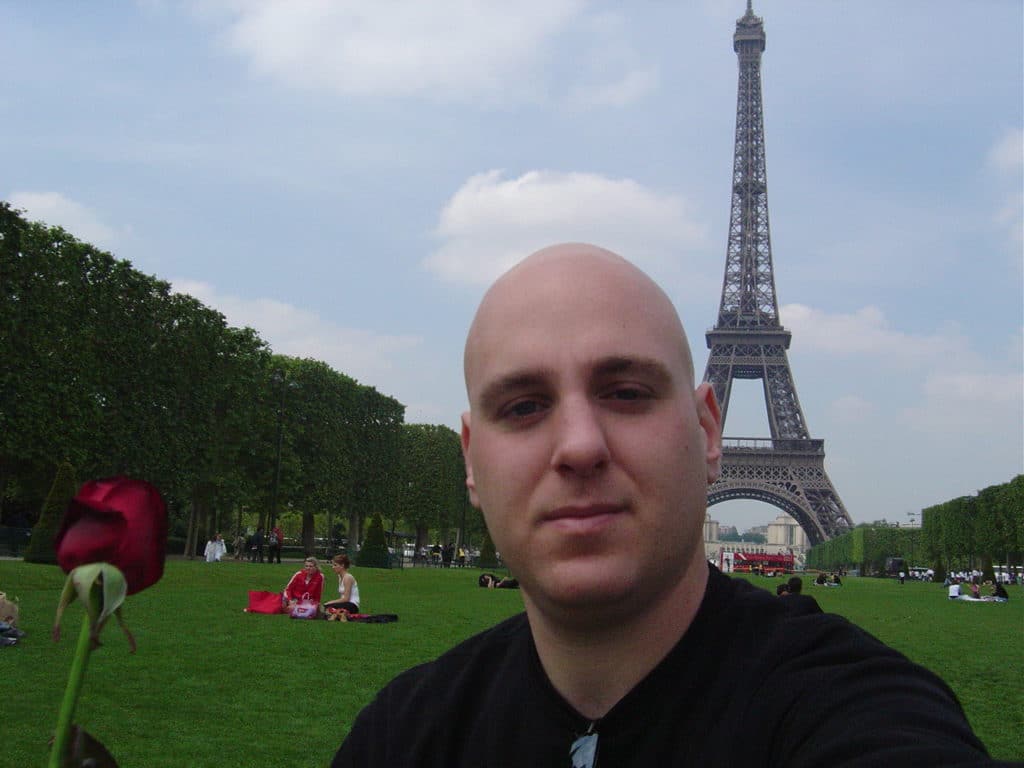
THE SECOND PROBLEM
Sadly I’ve found that the “peak experiences” fallacy is but a lesser error that the common understanding of “finding oneself” tends to make.
A greater is this: oneself is never to be found anywhere “out there.” Oneself is eternally to be found “in here.”
In the United States and increasingly in developed and developing nations around the world, we share a popular culture that prioritizes outer appearances over inner realities. Consumerism and materialism encourage us to pay more attention to what’s happening with the circumstances outside of us – bank balances, jobs, friends, social status, clothes, cars, homes, politics, sports, etc. – rather than the moving energies inside of us.
In fact, nearly everything in our shared cultural experience encourages us to look away from the complexities of our inner lives towards “stuff” in the outer. (I am not the first person to note this.)
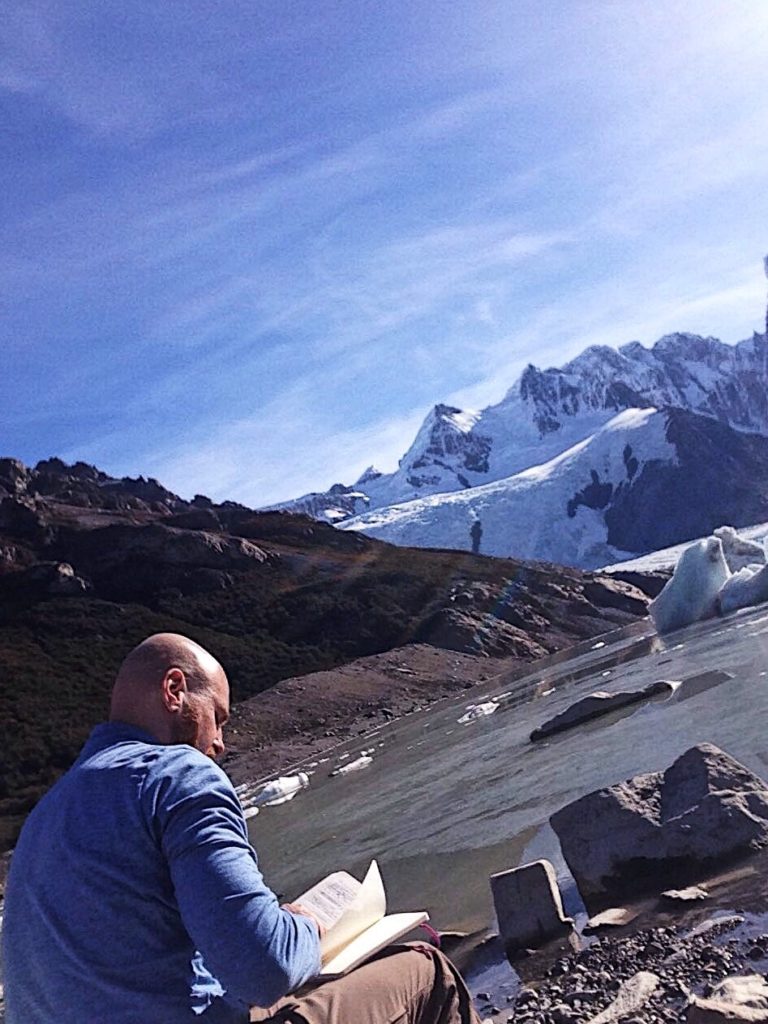
Applying this behavior to travel, one can see why individuals might subconsciously value iconic destinations over ordinary walking, arriving someplace over being there, and photographs over felt-perceptions.
To me, this explains why wherever I go I see cold faces light up at the working end of selfie sticks. Then some frames later, the documentation achieved, the destination is departed from unceremoniously. The sight of the Eiffel Tower, the Hong Kong skyline, Macchu Picchu, sunrise over Byron Bay, or even an exhibit in Singapore’s ArtScience Museum seems to have entered the visitors’ eyes but penetrated no further.
The phenomenon isn’t limited to stereotypical “tourists,” either. Many who fancy themselves “travelers” (often only a semantic distinction, which I’ll discuss in a future post) ardently compare lists of countries visited, destinations checked off, and passport pages stamped, as if travel is a contest. Really! It’s as if s/he who dies with the most toys… I mean stamps, wins!
Sadly, the perfect selfie rarely nourishes the soul, and a tightly-scheduled march through a curated list of activities more often results in exhaustion of inner energies (and bank accounts) over enlightenment.
I think on some level people know this, so they’re looking for “bigger, better, faster, more.” Only, that “more” is never found in the outer image. Not really. It’s found within.
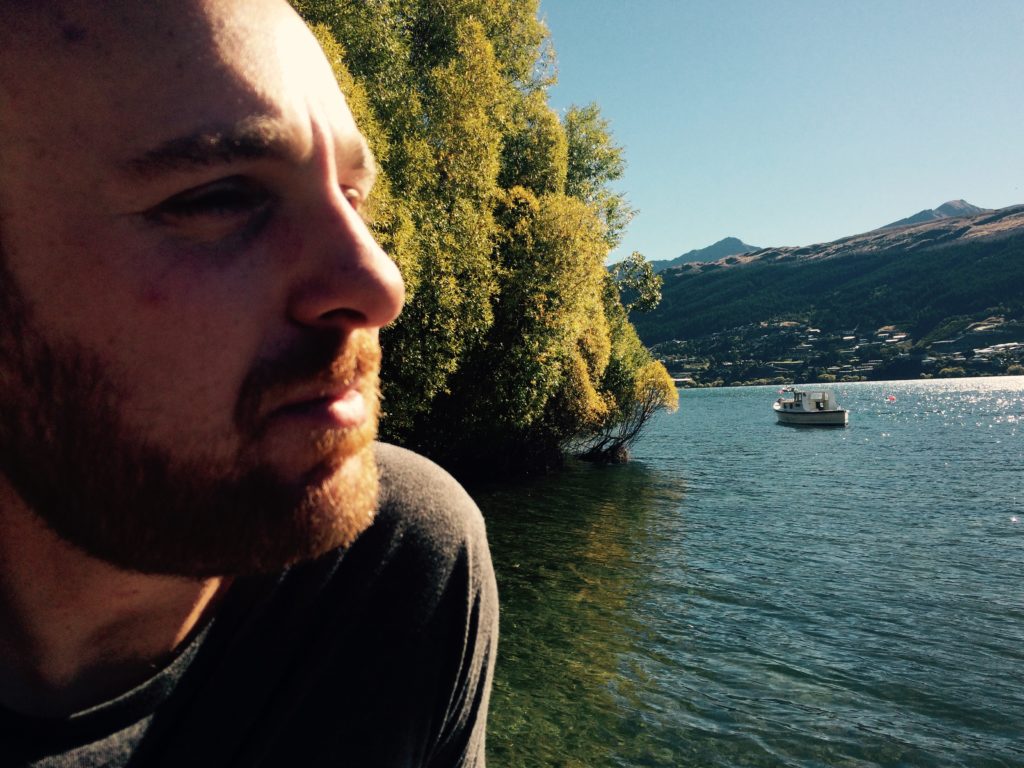
But here’s the catch: it is literally impossible to acquire and possess a felt experience. Because how to capture in one social media-friendly moment the discomfort, confusion, alienation, freedom, and, ultimately, joy flowing through even one “bare moment” of travel?
I don’t know. But I’ve tried; it’s like grabbing a fistful of the ocean.
Look, and it can’t be seen.
Listen, and it can’t be heard.
Reach, and it can’t be grasped.– Tao 14
Lao Tzu traveled. He knew. I wish more people did, for their own sake. I also recognize this is a lesson that I follow imperfectly.
Obviously I don’t blame TripAdvisor and Lonely Planet for all of this, nor the dedicated and passionate individuals who work there and contribute. What I’ve called this “materialistic approach” to travel is merely a branch off the larger propagation of materialism and consumerism generally, and their relentless obscuring of the light of our inner lives.
Returning to the realm of longer-term voyagers like me, this same misguided “materialistic approach” quietly engenders the notion that if one acquires as much “stuff” as one can – passport stamps, photos, experiences, etc. – one will inevitably “find him or herself” in the process. And it simply isn’t true.
THE TRUTH
Now head’s up, because I’m gonna throw a paradox at you: As I travel I am indeed “finding myself.”
It’s even part of why I set out, and I’m succeeding at it! Which helps explain why this experience has been so rewarding and enjoyable for me.
So does that make me a hypocrite, criticizing others for the very thing I’m doing? No. 🙂
“But Will,” as you are undoubtedly proclaiming aloud right now, “if ‘oneself’ is to be found inside and inside only, and travel has an authentic self-discovery component to it, as you just said, how can outer movement create inner self-discovery?”
A great question! That’s why I like you, because you’re so smart and perceptive. (And good-looking.)
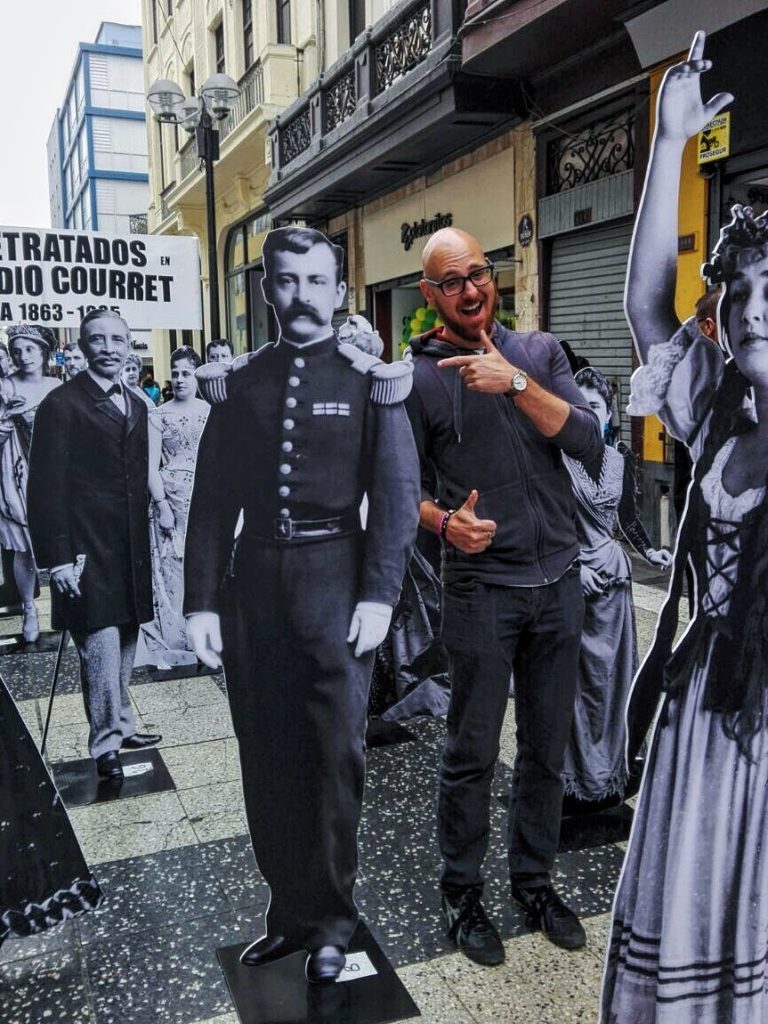
How do we hold these contradictory ideas in our heads at the same time, and find the higher perspective to reconcile them?
The process of self-discovery I’m experiencing surprised me, which is why I’m writing about it. It’s also how I found that the common “finding oneself” meme is wrong in the first place. Traveling has forced me to question my assumptions about what would transpire in and around me as I traveled.
Because I’ve never turned a corner and found me waiting. I’ve looked under rocks and not discovered me there. I ask friends and strangers, “Have you seen me?” and their confused stares are rarely encouraging.
What I do find is that the things I see, people I meet, and experiences I have draw submerged parts of me to the surface, like a magnet. In doing so, they often force other parts of me to fall away, for they no longer serve.
For example, travel makes me ask in new ways each and every single day, who am I in response to stress; to strangers; to crowds; to overwhelming beauty; to piercing ugliness; to surprise; to heat and cold; to luxury; to prosperity and privation; to the unmitigated presence of people; to danger; and to disbelief?
Who am I, and who do I choose to be, in response to being wrong; to being right; to being alone; to being afraid; to my own judgment and intuition; to the judgment of others; to being ill; to being lost; to racism and sexism; to being exploited; to love; and to apathy?
Where do these things live inside me? How do they move through me? And where do they stick?
(And I haven’t even made it to India yet.)
In this way, travel forces me to discard old beliefs and ways of being in favor of the new, because the genuine quest for self-knowledge comes with one price higher and often harder to give than money: the willing surrender of that which is false.
The best way I can explain this is to compare it to pressure, darkness, and heat in the moment refining my decisions, my insight (such as it comes), and my intuition. These forces bring parts of me – impurities, if you like – to the surface to be acknowledged, thanked, released, and burned away.
Between those moments, I create or find space to allow the new to rise and integrate.
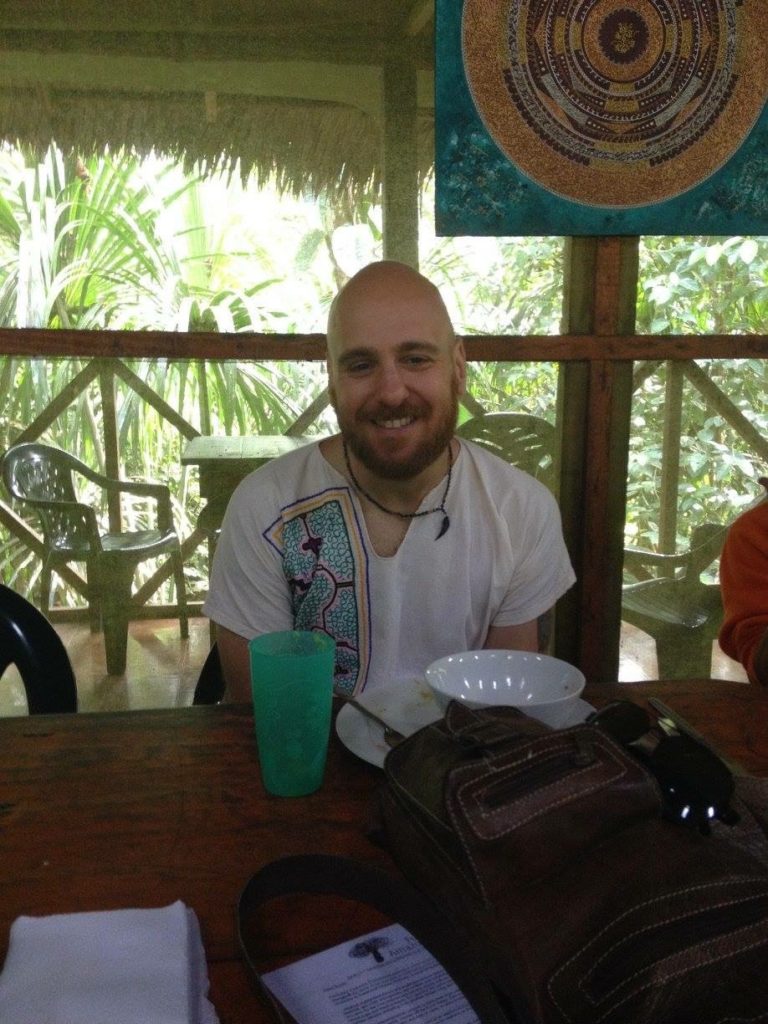
For clarity, I am not saying I am all things and all things are in me. This is not a celebration of solipsism.
Yes, of course, people have taught me things I didn’t know. More valuable than the lessons, though, is how they surface my inner learner, that childlike part of me who years ago soaked up his lessons so eagerly in school, and who now has found the ultimate classroom.
Absolutely I’ve seen strange things, both earthly and not, that I could never have conceived existed. They bring out the part of me that stretches to connect with the infinite things not-me.
I’ve seen beauty that strains my awe to take it in; felt sadness that cultivated my trust in others to let it out; been served foods that made me ask, “Can I eat that?” (it turns out I can… mostly); and been thrust into situations requiring my most saintly patience and humility, most often with myself… and frequently in airports.
Through these processes and others like it I discover and refine what’s already inside, every day, every step of the way.
My outer life thus becomes an instrument for self-discovery and refinement not of things that I’ve found, but of things that I was already carrying: some present, others sleeping, many forgotten.
And what a marvelous instrument this world has proven to be, and surely always was.
It’s all in how we use it.
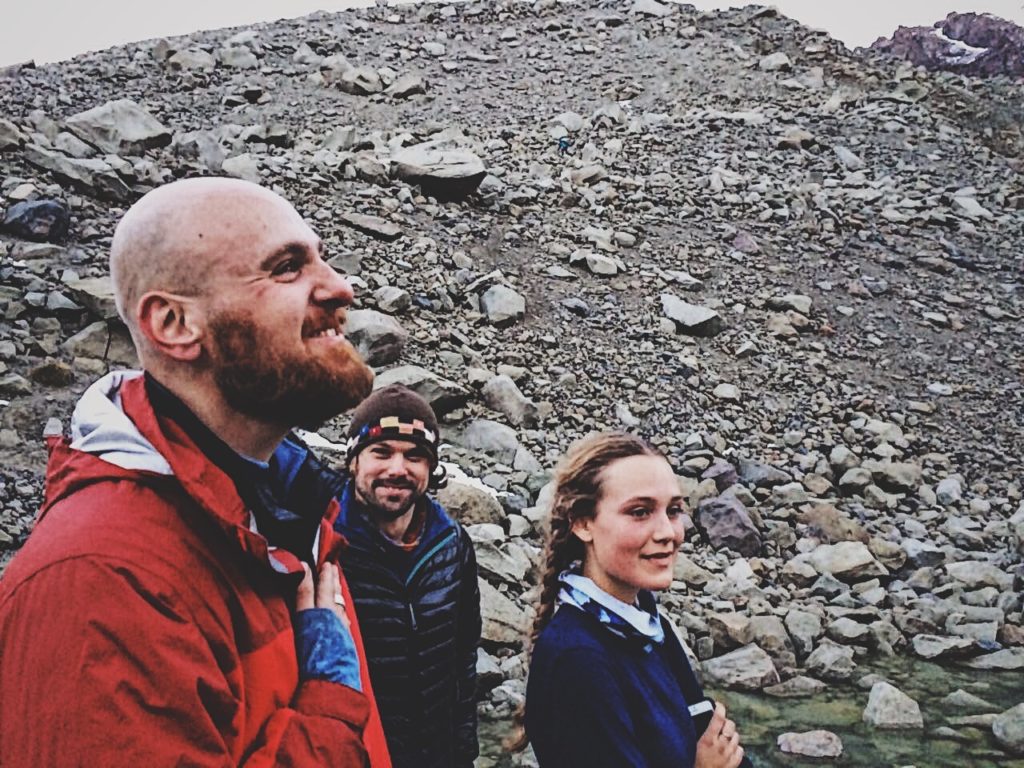
YOUR ROAD
Certainly by now someone reading this is thinking, “Wow, that’s really nice and all, Will. I wish everyone could go traveling to ‘find themselves’ like that. But some people have real lives to live, you know?”
Considering all I’ve said above, this statement exposes the final and greatest sin that “finding oneself” commits as it applies to travel:
This is my road. It might not be yours.
To use the expression of “finding oneself” solely in the context of extended travel, where I have only ever heard it used, is a deception we have repeated so often it has become “truth.”
We mock the phrase “finding oneself” not for no reason, but because everyone knows of at least one person who went traveling and “found” nothing, returning home as they were before, or worse. Was it because they weren’t looking hard enough?
No. As I’ve said before, they went looking in the wrong place, often through no fault of their own.
We are not “out there,” and we never have been. That many believe they must go “out there” to find themselves, and that our language perpetuates this falsehood, reinforces the idea that only the privileged can ever hope to achieve self-discovery. Their failures often bear false witness that there may be no “self” to find at all.
In fact, our roads to self-discovery are as varied as there are individuals, and not all involve a suitcase or a backpack.
Your life is your instrument, and it is lying in wait before you, within you, even now – assuming you have not already picked it up and begun to play.
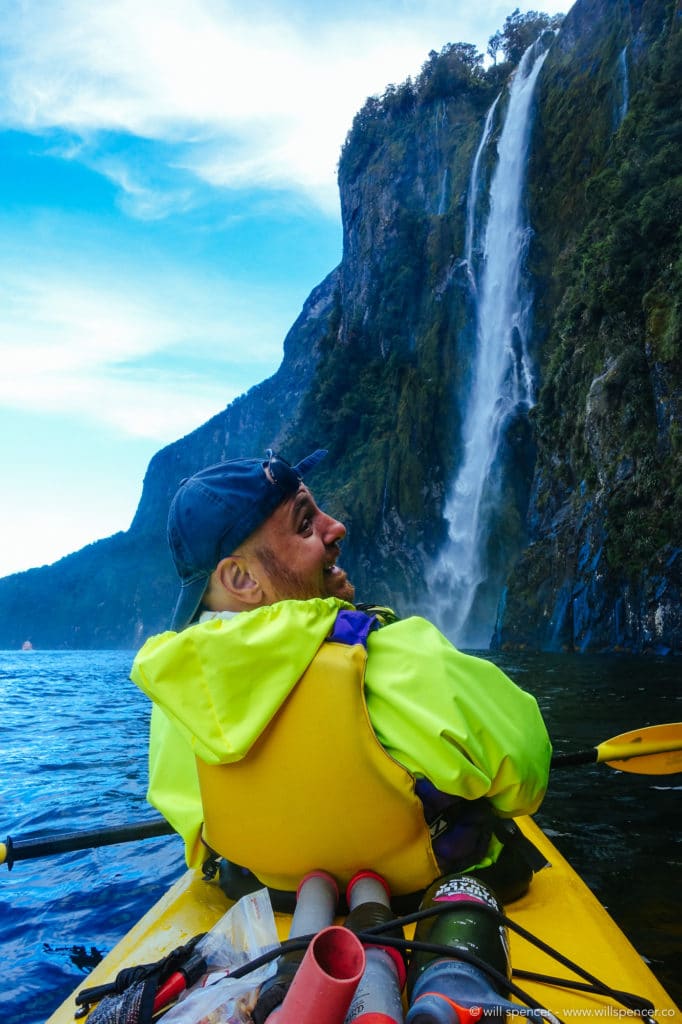
I know this is my instrument because this journey is the first thing I ever remember wanting…
On New Year’s Eve 2000, Y2K, I stumbled into the secret vault of my heart, my soul. Without exaggeration, what I saw overwhelmed me: sourceless light, endless love, and what I might metaphorically describe as three words of “hieroglyphics.”
The first word I read was “travel (the world).” I can’t explain how I knew this. I just did.
I had had no visions of traveling before, no aspirations to explore beyond the western United States, where I lived – not that I recall, anyway. But in that moment I discovered them. I swear I did not put them there.
Still an uneducated translator of my deepest desires, sadly I misinterpreted the second and third words of hieroglyphics. These simple errors led me to make 16 years of “mistakes” before I finally learned to comprehend – Maktub! – what was already written.
It was this, only and exactly this: what I’m experiencing now, what I have for almost a year and a half, and what, God willing, I will for quite a bit longer to come. (Yes I’m coming back but… don’t wait up. 😉 )
So I can say with utmost confidence this is my road, my dream. It is what I was designed to do; these are the lessons I am meant to learn.
I don’t know why. I pray I find out later.

BEGIN WITHIN
Within you is the same vault with your own sourceless light, endless love, and words of “hieroglyphics.”
Maybe you’ve stumbled in there already. Maybe you visit every night. But I believe that anyone who knows the emotion of longing for union with another must also know the equivalent if not greater desire to unite with themselves, to look within their “vault” to witness what’s written inside, in the language only they can read.
Your inner Indiana Jones and Lara Croft may be of use yet! Because what you read in there will be the signpost to YOUR road. In that way the path you subsequently walk, step by halting step, will become your instrument, and the lessons meant for you arrive.
Whether you dream to dance, sing, sculpt, paint, write, cook, nurse, heal, speak, organize, preach, teach, get in shape, meditate, nurture, parent, or yes, travel (or anything else!) you will discover as I and countless others have that our great dream pursued is the ultimate journey of self-discovery.
The art or science practiced is only and ever about the discovery and refinement of self. For to “do” we must “be.” When we “be better” we also “do better.” And then, magically, vice versa.
Thus you and I reveal ourselves to be the lead we transmute to gold, enriching our impoverished world.
This is the Way.
But until we as individuals learn to begin within, we will not find. Because despite what mass cult-ure screams at us with every breath, we’re not “out there.”
I know this because I’m walking my road, playing my instrument, finding myself “in here,” where I always was.
It’s where you are, too.

WHEN TO LIVE
It is my firm conviction that wherever we are in life the Way is available to us.
Even if I had made other life choices, as husband and father or as a 70- or 80- or even 90-year-old man at the end of his life, I still could have traveled. Though the experience would not have been this purest expression of my desires, I would have gotten something. The effort alone would have been worth it, if only for a taste.
So I hope wherever you find yourself in life “out there,” you find the thought comforting that while you may not be able to hear the whole symphony – though who can know? – you cannot be denied your Overture, or at least the opening notes.
And I promise you, that music will be the sweetest you have ever heard.
If it is the last thing you hear, to know the Music of the Spheres has a part in you – and what a part it is! – then that, even at the last, will be a life well-lived. What other meaning can that phrase have?
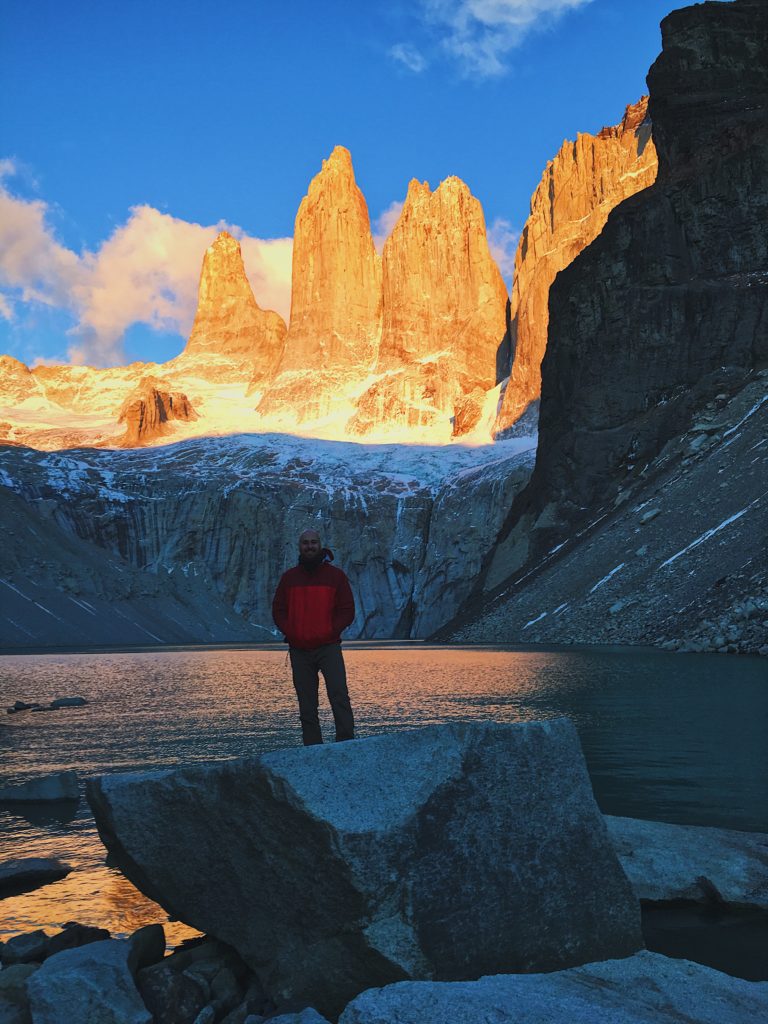
But let me not be a Pied Piper, beckoning you beyond the bounds of responsibility. Whatever burdens we have assumed that our most holy and sacred conscience commands us to fulfill must be taken into account. We may only step onto the road where we are, not where we once were.
Just remember:
Difficulty becomes impossibility only under the influence of our mistaken beliefs, never in reality. And difficulty never abrogates responsibility to others, nor to ourselves, either.
For only you can seek your inner vault. Only you can open the door, for as it is written, “Knock and it shall be opened to you.” Only you can learn to interpret your hieroglyphics. Only you can follow the instructions therein.
No one can dream your great dream for you. Who will do it if not you?
If you are looking for roads inward, I have found some. I wrote about them here, here, and here, though there are many, many, many, many others. These bore the weight and test of my footsteps. They will bear the weight and test of yours.
You have only to choose to walk, which is the taking of one step. Then another.
I wish you courage, strength, and blessings. Remember, treasure the bare moment on your next vacation and right now.
And if you wish to, I hope one day you will share with me the music of your instrument.
I and others should very much like to hear it.
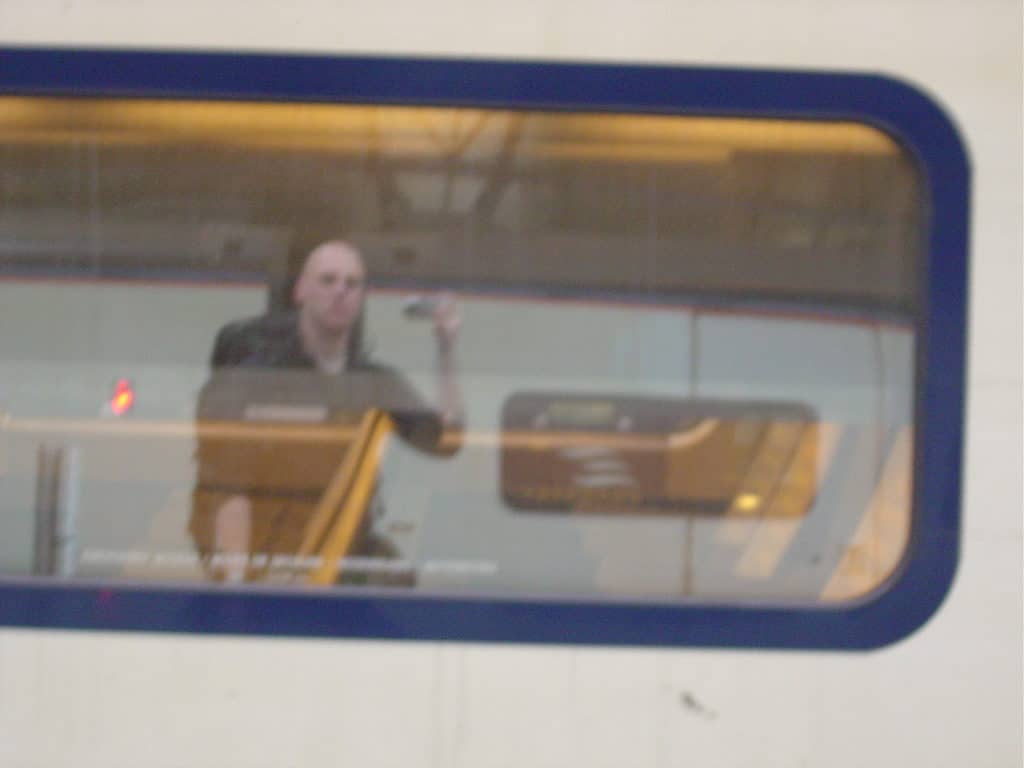
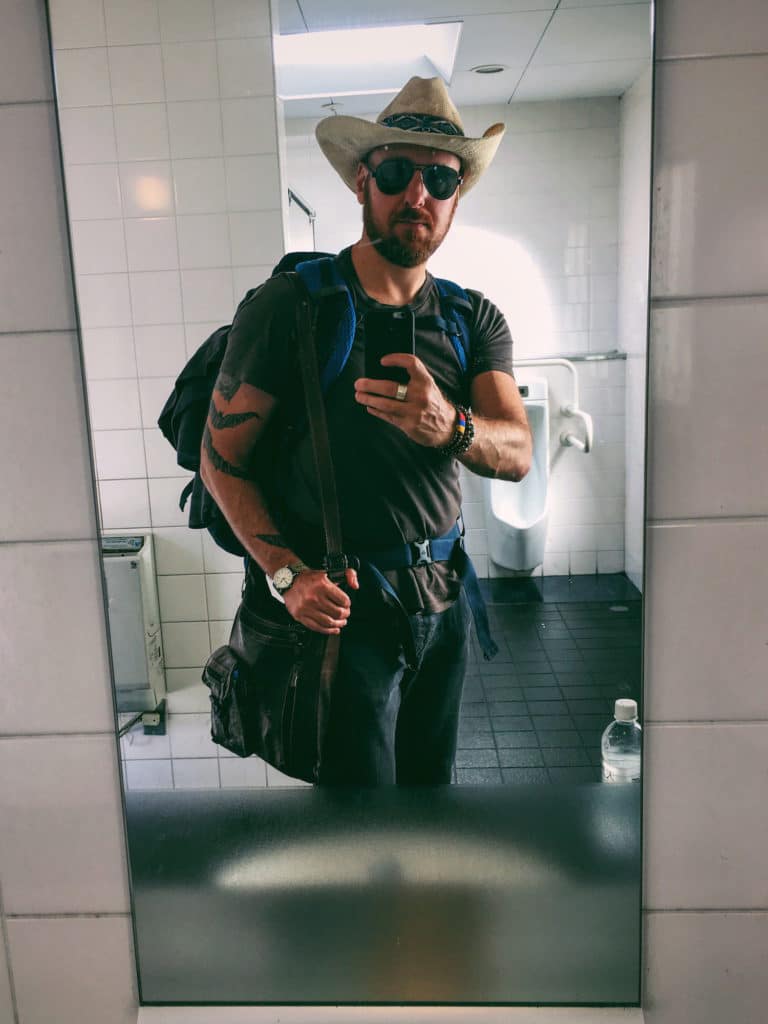
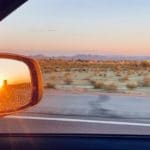
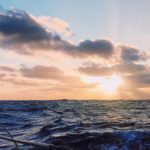

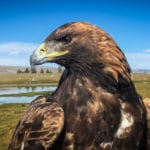
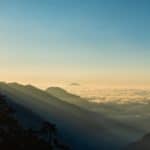
3 Comments